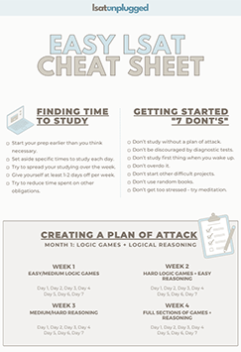Studying for the LSAT when you first wake up is not a good idea. It doesn’t matter whether you wake up in the morning or afternoon.
Why? Because your brain needs time to get out of sleep mode. It’s called sleep inertia.
One of my LSAT students emailed me with the following:
I was trying to take your most recent advice to heart: study 2-3 hours a day. One way to do this is to get up early and practice in the morning before work/school.
Any researcher of sleep physiology will tell you that your brain is not fully awake and capable of operating at its optimum capacity until 90 minutes after you have awoken.
More important than the actual preparation is your test day “readiness”, one aspect of which is your clarity of thinking. Getting on a schedule where you are used to being up and “fully awake” in the sense described above would be important for your actual performance.
Some of your students most likely are used to sleeping from 12-1-2 am to 7:30-8 am. It would be a terrible mistake to keep this schedule the day, week, even fortnight before the test date. Establishing a schedule that allows your brain to be fully awake at 8 am on LSAT test day will be an important contribution to your performance.
Of course, that last part doesn’t apply to all you June test-takers because the June exam starts in the afternoon.
However, even if you’re taking the June exam, this still means you shouldn’t study when you first wake up in the morning.
Here’s an example of research supporting this:
Grogginess, Disorientation On Awakening More Debilitating Than Sleep Deprivation
Excerpts:
The study showed test subjects had diminished short-term memory, counting skills and cognitive abilities during the groggy period upon awakening known as sleep inertia…
For a short period, at least, the effects of sleep inertia may be as bad as or worse than being legally drunk…
The most severe effects of sleep inertia generally dissipated within the first 10 minutes, although its effects are often detectable for up to two hours…
Another study referenced in that link indicates:
[C]ortical areas of the brain like the prefrontal cortex take longer to come “on-line” following sleep than other areas of the brain…The prefrontal cortex is thought to be responsible for problem solving, emotion and complex thought.”
So, if you wake up at 7AM, you’re probably not going to operate at 100% until close to 9AM. While most of the effects of sleep inertia go away pretty quickly, it’s the prefrontal cortex that you really need for your studying.
Problem solving and complex thought sound like LSAT-related tasks to me.
When you first wake up, do other stuff before you start your LSAT studying. Eat breakfast, shower, exercise, check email, etc.
If you do your LSAT studying as soon as you wake up, you’re likely to do less than your best. The LSAT can be frustrating enough without sleep inertia – don’t make things harder than they have to be.

